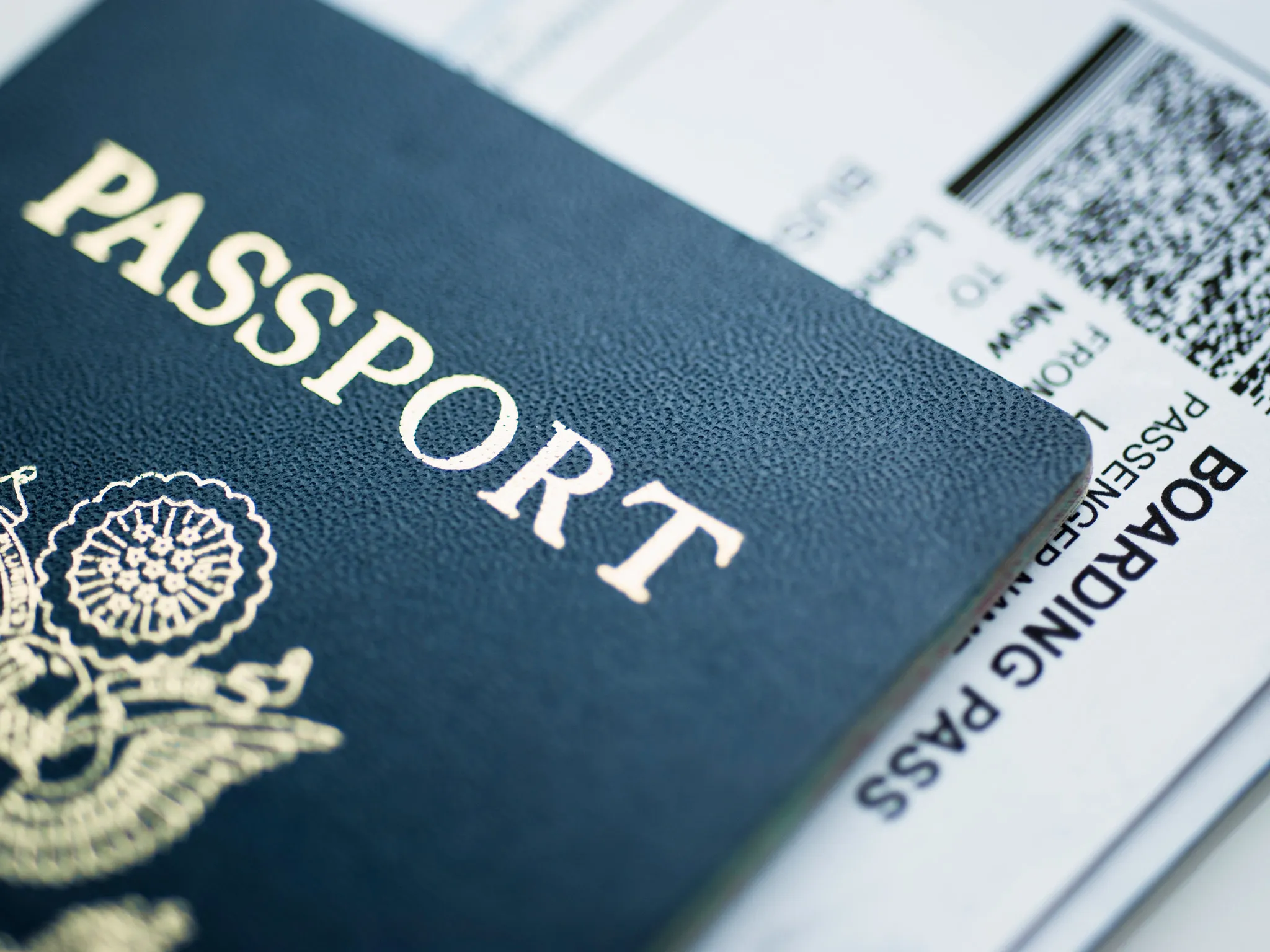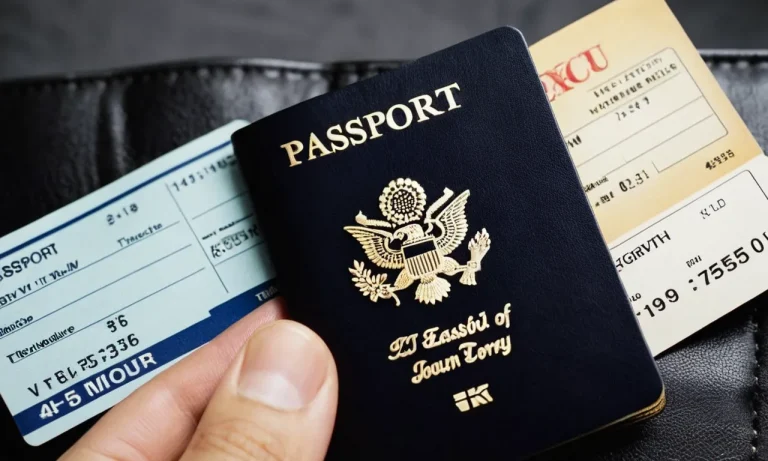For American citizens, having a valid passport is essential for seamless international travel. But what if your passport unexpectedly expired or got lost right before a planned trip abroad? Can you still legally leave the country?
Here’s a quick answer: In most cases, no, you cannot leave the U.S. without a passport. There are a few limited exceptions for specific destinations and situations.
But for the vast majority of foreign travel, American citizens must have a passport book or card to exit and re-enter the U.S.
In this comprehensive guide, we’ll explain passport requirements to leave the U.S., destinations you can visit without a passport, tips for resolving passport issues, and key things to remember when traveling internationally.
Passport Requirements for Exiting the U.S.
Needed for International Air, Land and Sea Travel
If you are planning to leave the United States and travel internationally, it is important to understand the passport requirements.
A passport is an essential document that serves as proof of identity and citizenship when you are entering or exiting a country.
For U.S. citizens, a passport is generally required for all international travel, including air travel, land travel, and sea travel.
This means that whether you are flying to a European destination, taking a road trip to Canada, or cruising to the Caribbean, you will need a valid passport to exit the U.S.
According to the U.S. Department of State, a passport is mandatory for all international air travel, regardless of destination. So, if you have plans to explore the wonders of Paris, experience the beauty of the Great Barrier Reef in Australia, or visit the historical sites in Egypt, make sure to have your passport ready before you board your flight.
Additionally, if you are planning to travel by land or sea to countries other than Canada, Mexico, or the Caribbean, you will also need a passport. This includes road trips to countries like France, Spain, or China, as well as cruises to destinations like Alaska or the Bahamas.
So, if you have dreams of embarking on a European adventure or sailing through the crystal-clear waters of the Mediterranean, don’t forget to obtain your passport before setting off on your journey.
Valid for All Destinations Except Canada, Mexico, Caribbean
While a passport is generally required for international travel, there are a few exceptions for U.S. citizens. When it comes to traveling to Canada, Mexico, or the Caribbean, a passport may not be necessary. Instead, you can use alternative documents to enter these destinations.
These alternative documents are accepted for land and sea travel, making it convenient for those planning a road trip or a cruise to our neighboring countries.
However, if you plan to travel by air, a standard passport is still required.
Similarly, for travel to the Caribbean, U.S. citizens can use a passport card or an enhanced driver’s license as an alternative to a traditional passport. This applies to destinations such as the Bahamas, Jamaica, and the Dominican Republic, among others.
However, it’s important to note that some countries in the Caribbean may still require a traditional passport, so it’s best to check the specific entry requirements for your destination before you travel.
Required for All Citizens Regardless of Age
Passport requirements apply to all U.S. citizens, regardless of their age. Whether you are an adult planning a solo backpacking trip or a parent traveling with your newborn baby, everyone needs a passport to exit and re-enter the United States.
For minors under the age of 16, a passport is typically valid for 5 years, while for adults aged 16 and older, a passport is valid for 10 years.
So, if you are planning a family vacation or taking your children on their first international adventure, make sure to apply for their passports well in advance to avoid any last-minute stress.
Where Can You Go Without a U.S. Passport?
While having a valid U.S. passport is essential for international travel, there are a few exceptions that allow U.S. citizens to visit certain destinations without a passport. Here are some of the places you can go without a U.S. passport:
Canada and Mexico by Land or Sea Only
If you’re planning a trip to Canada or Mexico, you may be able to cross the border by land or sea without a passport. U.S. citizens can use alternative documents like an Enhanced Driver’s License or a Trusted Traveler Program card, such as the NEXUS or SENTRI card, to enter these countries.
However, it’s important to note that if you’re traveling by air, a valid U.S. passport is still required.
Caribbean Countries via Certain Cruise Ships
If you’re dreaming of a Caribbean getaway, you may be able to visit some of the beautiful islands without a passport. Certain cruise ships offer “closed-loop” itineraries, meaning they depart from and return to the same U.S. port.
As long as you have a government-issued photo ID, such as a driver’s license, and proof of citizenship, such as a birth certificate, you can enjoy a tropical vacation without a passport.
However, it’s always a good idea to check with the cruise line and the destination country’s requirements before you set sail.
U.S. Territories Like U.S. Virgin Islands
If you’re looking for a tropical escape within the U.S., the U.S. Virgin Islands is a popular destination that doesn’t require a passport for U.S. citizens.
Located in the Caribbean, these islands offer stunning beaches, crystal-clear waters, and a unique blend of American and Caribbean culture.
Since they are U.S. territories, you can travel to the U.S. Virgin Islands with just a government-issued photo ID, such as a driver’s license or a birth certificate.
It’s important to keep in mind that the requirements for traveling without a passport can change, so it’s always a good idea to check with the appropriate authorities or consult the U.S. Department of State’s official website for the most up-to-date information.

Tips for U.S. Travel Without a Passport
Resolve Expired Passport Before Departure Date
If you’re planning to travel outside of the United States, it is crucial to check the expiration date on your passport. Many countries require at least six months of validity remaining on your passport beyond your planned departure date.
If your passport is expired or about to expire, it’s important to renew it as soon as possible. Leaving the U.S. without a valid passport can result in complications, denied entry, or even being stranded in a foreign country.
Consider Expedited Renewal Service
If you find yourself in a situation where your passport is expired or expiring soon and you need to travel urgently, consider utilizing the expedited renewal service.
The expedited service allows you to receive your passport within a shorter time frame, typically within two to three weeks.
However, it’s important to note that there are additional fees associated with this service. Make sure to check the official website of the U.S. Department of State for the most up-to-date information on fees and processing times.
Bring Proper Alternative Documents
In some cases, it may be possible to travel to certain destinations without a passport if you have alternative documents.
For example, if you’re traveling to Canada or Mexico by land or sea, you can present a valid Enhanced Driver’s License (EDL) or a Trusted Traveler Program card, such as a NEXUS or SENTRI card, instead of a passport.
However, it’s essential to check the specific entry requirements of your destination country before relying on alternative documents.
Each country has its own regulations regarding entry and identification, so it’s crucial to be well-informed before your trip.
Remember, while it’s possible to travel without a passport under certain circumstances, having a valid passport is the safest and most convenient way to travel internationally.
It’s always recommended to check the entry requirements of your destination country and ensure that you have all the necessary travel documents before your trip.
Key Passport Requirements to Remember
When it comes to traveling outside of the United States, having a valid passport is a crucial requirement. Whether you are planning a vacation or traveling for business purposes, it is important to understand the key passport requirements to ensure a smooth journey.
Required for All Air Travel Outside U.S.
If you are planning to travel by air, it is mandatory to have a valid passport. This applies to both U.S. citizens and foreign nationals.
Whether you are traveling to a neighboring country or a far-flung destination, your passport serves as your official identification and proof of citizenship.
It is essential to have a passport to enter any foreign country and to re-enter the United States.
Needed for Adults and Children Alike
Passports are not just for adults! Every individual, regardless of age, must have their own passport when traveling internationally.
This includes infants, children, and teenagers. It is important to apply for a passport well in advance, as processing times may vary.
Parents or legal guardians can apply on behalf of their children, ensuring that every member of the family has the necessary travel documentation.
Fun fact: Did you know that the youngest person to ever receive a U.S. passport was only a few days old?
Check Destination Entry Rules Too
While having a valid passport is a universal requirement for international travel, it is also important to check the entry rules of your specific destination. Some countries may have additional entry requirements, such as visas or travel permits.
It is crucial to research and understand these requirements well in advance to avoid any last-minute complications.
The U.S. Department of State’s website is an excellent resource to find up-to-date information on entry requirements for different countries.
Conclusion
Having a valid passport is required for leaving the U.S. and entering most foreign countries. With some advance planning, you can avoid any passport-related hiccups derailing your travels.
Bon voyage! We hope this guide provided useful information to make your international trip smooth and hassle-free.






